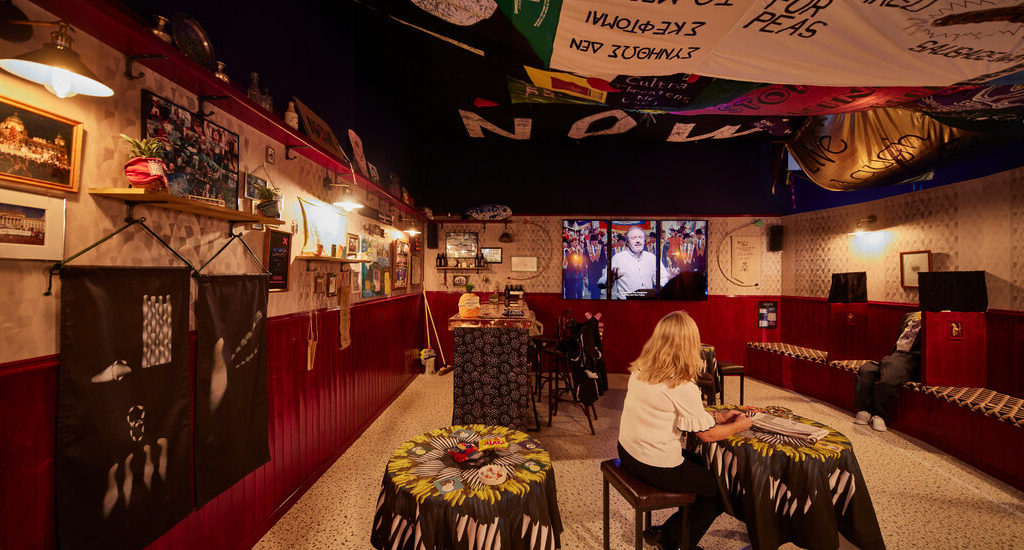Alex Farquharson, the director of Tate Britain and the chair of the Turner jury, said in an interview that Array won for street interventions and artwork that “brings a sense of light and hope and humor” to protests about abortion and gay rights.
At recent abortion-rights rallies in Northern Ireland, Array turned up with lighthearted banners featuring the ancient — and rather graphic — figure of sheela na gig.
The Belfast-based group beat four other collectives, including Black Obsidian Sound System, a group of Black queer, trans and nonbinary people who stage club nights, and Cooking Sections, whose art highlights the problems of salmon farming.
The Turner Prize, first awarded in 1984, helped turn some of its recipients, like Damien Hirst and Steve McQueen, into household names in Britain.
Some artists also took issue.
Farquharson said that collectives were chosen partly because the pandemic meant few exhibitions of individual artists occurred in Britain in the past year.
